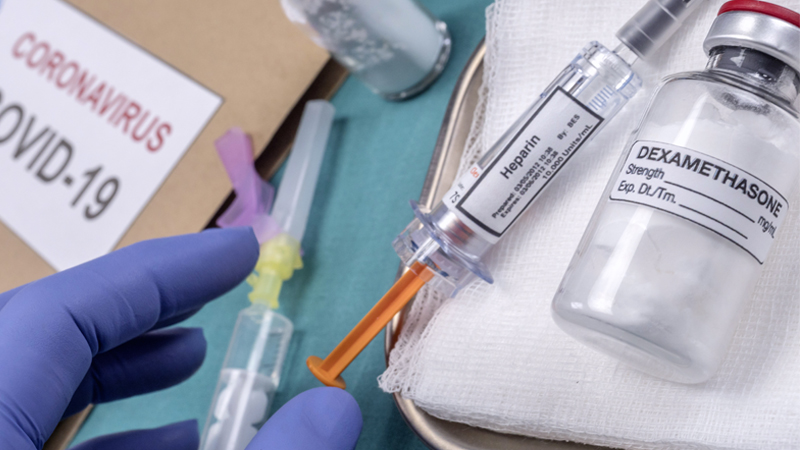COVID-19 Story Tip: Steroid Drug Hailed as Effective COVID-19 Treatment but Questions Linger About Its Use for Black Patients
06/23/2020

Recent news stories have widely reported on clinical trial results announcing that a steroid drug called dexamethasone reduced deaths among patients hospitalized for COVID-19. However, a scant amount of data from the trials has been released to the public, prompting scientists to call for more information, insight into trial participant demographics and caution before proclaiming victory.
The call is particularly important, says Johns Hopkins pharmacologist Namandje Bumpus, Ph.D., because dexamethasone, commonly used as an anti-inflammatory drug to treat asthma, allergies and many other conditions, has been shown to work differently for people who are Black than people of other ethnicities.
“It’s possible that dexamethasone could be an option for treating Black people with severe COVID-19, but we need to know that a significant number of Black people have been included in the clinical trials to make sure the drug is safe and works the way it should,” says Bumpus, who was recently named director of the Department of Pharmacology and Molecular Sciences at the Johns Hopkins University School of Medicine.
Bumpus is an expert on how genetics dictates the way drugs are processed in the body. Before she became Johns Hopkins Medicine’s first African American woman department director, she discovered that a common HIV drug may be less effective for people who are Black people who have higher levels of a certain enzyme that processes the drug than among people of other ethnicities.
Outstanding questions about the dexamethasone clinical trials include: How many people who are Black were included in the study? Did it have enough statistical power to detect differences among ethnic populations? Bumpus also notes that dosing differences among research participants could affect the results.
Black people have been reported to show differences in levels of insulin and suppression of immune system T-cells in response to dexamethasone, as compared with people who are white. It has also been reported that pregnant Black women who receive dexamethasone before giving birth have an increased risk of delivering infants with respiratory distress syndrome compared with Black women who receive a similar drug. In contrast, this difference was not seen among women who are white.
“We have a lot of data over decades to suggest that every drug is not a one-size-fits-all solution,” says Bumpus, who also notes that Black people have historically been underrepresented in clinical trials.
She notes that more information is needed to understand the drug’s effects and potential complications in various populations and how clinicians can improve their monitoring systems for such effects.
For information from Johns Hopkins Medicine about the coronavirus pandemic, visit hopkinsmedicine.org/coronavirus. For information on the coronavirus from throughout the Johns Hopkins enterprise, including the Johns Hopkins Bloomberg School of Public Health and The Johns Hopkins University, visit coronavirus.jhu.edu.
